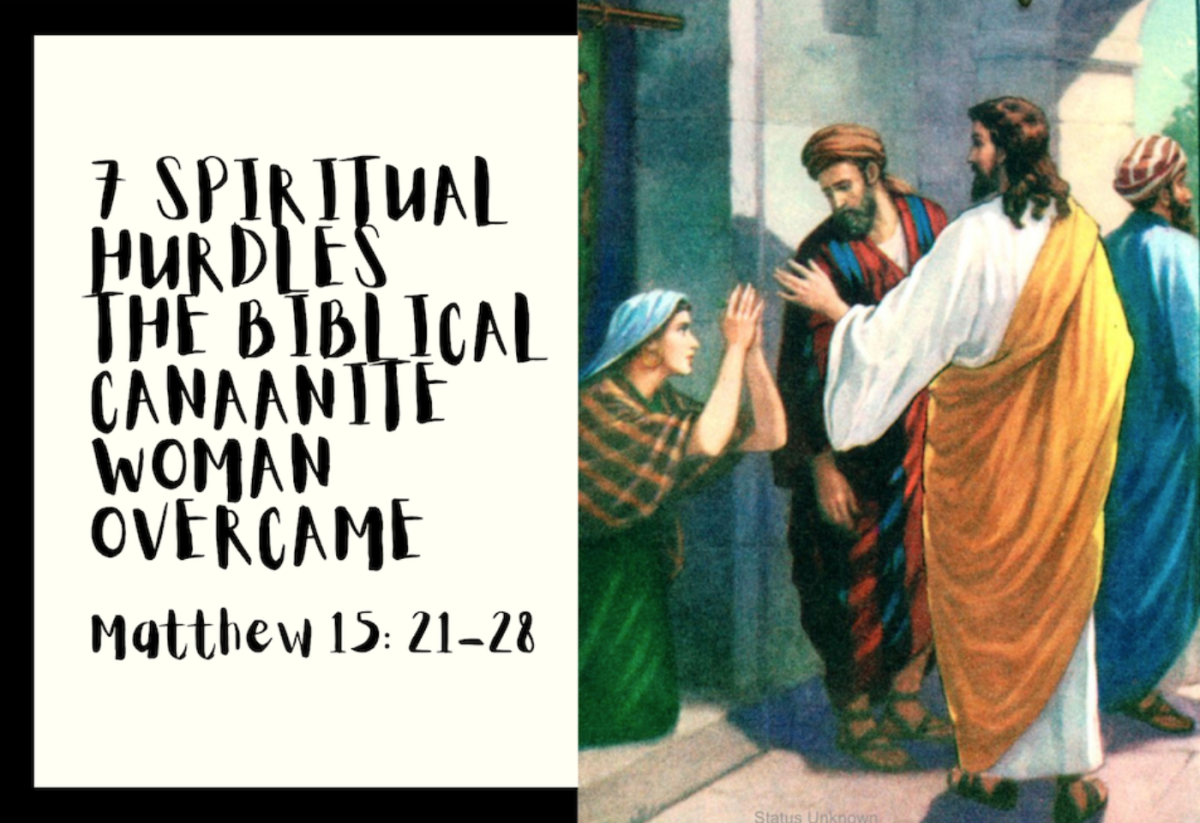Rich Man Poor Man

Finding Out What Number One Is To You
The comedy film City Slickers was one of Hollywood’s biggest hits in 1991. In that movie, three men in their midlife lament over their wasted lives. Their search leads them to a dude ranch where they encounter a tough-as-nails trail boss who leads them on a cattle drive. The trail boss says, “You have to find out what number one is—you have to find it out by yourself.” After a life-threatening experience herding cattle, all three men find out what they care more about than making money or having fun. The men are changed from being shallow and superficial to being centered and focused.
Sometimes this transition happens to men and women in college, at times during a personal crisis, but more often in midlife. In the following story, “finding out what number one is,” happens along the road in the life of a young man. Life is full of unanswered questions. Some are trivial, some are serious, and some are of immense importance. But the young man asked the greatest of questions. Nothing in his life was ever more dependent on the answer.
I. What One Must Do
As he [Jesus] was setting out on journey, a man ran up and knelt before him, and asked him, "Good Teacher, what must I do to inherit eternal life?" Jesus said to him, "Why do you call me good? No one is good but God alone. You know the commandments: ‘You shall not murder; you shall not commit adultery; You shall not steal; You shall not bear false witness; You shall not defraud; Honor your father and mother.’” He said to him, “Teacher, I have kept all these since my youth.” Jesus, looking at him, loved him and said, “You lack one thing; go, sell what you own, and give the money to the poor, and you will have treasure in heaven; then come follow me.” When he heard this, he was shocked and went away grieving, for he had many possessions (Mark 10:17-22).
As Jesus started on his way, he meets a kingdom seeker; a man at the crossroads of the most important decision in his life. The scriptures say in verse 17a, “…a man ran up and knelt before him.” At first glance, there seems to be nothing unusual about that save for the fact that few people ran under the hot Palestinian sun. The young man fell on his knees before Jesus. He was in search of an authoritative answer to an eternal question in verse 17b, “…what must I do to inherit eternal life?” Mark does not identify this man, who runs up to Jesus. We only know from the text that he had “many possessions” (v.22). In the other two gospels, Luke calls him a “ruler” (18:18) and Matthew mentions that he was “young” (19:20). You could say that he was not only wieldy in power but also wealthy in possessions. And being rich, we can presume that he was enjoying his life in this age and was looking forward to more of the same—an eternal life of enjoyment in the age to come.
In this wealthy young ruler’s world, you don’t get something for nothing. Everything has a price. To that extent, he had always been able to pay for what he possessed in this life and was prepared to pay top dollar for his ‘E—ticket’ into the kingdom of God. Remember his question in verse 17, “what must I do to inherit eternal life?” He wanted to ‘do something’ to earn eternal life. He was willing to do whatever it takes to possess this inheritance.
II. Only One Is Good
Here is a man who is driven by a controlling passion to be good and perfect. It is obvious that his concept of goodness was defined as achievable by human standards. He was confident of his own ‘good’ in terms of his own declaration in verse 20, “I have kept all these since my youth.” The young man hoped to learn from an exceptionally ‘good’ man what more could possibly be done to inherit eternal life. Who better to ask than the “Good Teacher” himself?
Does the young man know what ‘goodness’ is? Before going any further, Jesus stops this ‘goody two-sandals’ in his tracks and sets the record straight. Only one is perfect in goodness, and that person is God. In verse 18 Jesus says, “No one is good but God alone.”
If he were to make God his true measure of goodness, then he would obey no other will except that of the will of God as it is laid down in the law (v.19). Did he murder anyone? No. Did he commit adultery? No way. Did he steal, lie or cheat? Never. Did he honor his parents? Indeed. So what’s the point? Jesus does not say, “Keep the commandments to inherit eternal life.” And if one truly knows the commandments of God, one would come to his or her senses and admit the impossibility of achieving goodness by keeping them. The law is the expression of the character and goodness of God. Therefore in James 2:10 we read, “For whoever keeps the whole law but fails in one point has become accountable for all of it.” Ultimately, no one is good or can achieve perfection in goodness “but God alone.”
III. One Thing You Lack
In all his sincerity, the young man was not put to shame. Bowed down before the feet of Jesus was a lost soul who was genuinely seeking a right relationship with God. In verse 21 it says, “Jesus, looking at him, loved him…” The intensity of Jesus looking at the man and the recency of his having blessed and hugged the children in the preceding passage (vs. 13-16) provides us with a compassionate portrait of his love. We can only assume that he put his arms around this searching soul, embraced him and loved him.
Has Jesus ever looked at you in this way? This is the kind of look that has penetrated and transformed the souls of many individuals who were open and receptive to him. Under the warm radiance of his gaze, you will either harden like a brick of clay or soften like a stick of butter. If you remain hard and inflexible, you will continue to insist on having things done your way. But if you are soft and pliable with God, then he enables you to say in Mark 14:36, “not what I want, but what you want.”
The rich man is measured in the light of God’s standard. Jesus weighed him upon the scales of eternity and he was found lacking. Jesus’ reply did not mean that he had to add ‘one more thing’ to what he has already done from his youth but undo or give up what he had. What was it that prevented this young man from following Jesus? What ‘one thing’ got in the way of his relationship with God and the kingdom? The man’s security and significance in his “many possessions” (v.22) was the ‘one thing’ that meant everything to him.
A well-known pastor was invited to dinner in the home of a wealthy man in Texas. After the meal, the host led him to a place where they could get a commanding view of the entire area. Pointing to the oil wells that dotted the landscape, he boasted, “Twenty-five years ago I had nothing. Now, as far as you can see, it’s all mine.” Looking at the opposite direction toward sprawling fields of grains, he said, “That’s all mine.” Turning east toward a huge herd of cattle, he bragged, “They’re all mine.” Then pointing to the west and a magnificent forest, he exclaimed, “That too is all mine!” The wealthy Texan paused, expecting the pastor to compliment him on his great success. The pastor, however, placed one hand on the man’s shoulder and pointing heavenward with the other, simply asked, “How much do you have in that direction?” The man hung his head and confessed, “I never thought of that.” Although he had succeeded in making buckets of money and accumulating acres of property, the wealthy Texan failed to prepare for eternity. He could not see past the material rewards of his own kingdom in order to receive eternal treasure in the kingdom of God.
Remember Jesus’ stern warning in Luke 12:15, “Take care! Be on your guard against all kinds of greed; for one’s life does not consist in the abundance of possessions.”
IV. One Master To Follow
Scripture declares consistently and forcefully that the creation is good and should be enjoyed. For example, we read in Deuteronomy 8:7-9, “For the LORD your God is bringing you into the land…a land where you may eat bread without scarcity, where you will lack nothing.” For promises such as this, God intends that his people should have adequate material provision. There is misery when people are obsessed in making money and trying to secure their own lives apart from God’s provision: “For the love of money is a root of all kinds of evil, and in their eagerness to be rich some have wondered away from the faith and pierced themselves with many pains” (1 Tim 6:10).
Jesus declared war not on money but on the materialism of his day. And I would add that he declares war on the materialism of our day as well. The Aramaic term for wealth is mammon, which is derived from the Hebrew word “trust.” That is why we “cannot serve God and wealth” (Mt 6:24) since trust in ‘the one’ excludes the other. Jesus condemns it as an idolatrous and rival god saying, “No one can serve two masters; for a slave will either hate the one and love the other, or be devoted to the one and despise the other” (Lk 16:13).
Jesus exhorted the rich young ruler not just to have an inner attitude of detachment from his possessions, but also to literally rid himself of his possessions if he wanted the kingdom of God. He did not possess his possessions, but it was his possessions that possessed him. If one really wants the kingdom of God, one must, like a merchant in search of fine pearls, be willing to sell everything he has to possess “the one pearl of great price” (Mt 13:45-46). Jesus said to the rich man in verse 21, “You lack one thing; go, sell what you own, and give the money to the poor, and you will have treasure in heaven; then come, follow me.”
The sale of the rich man’s worldly possessions and the surrender of its money to the poor is not an end in itself but a part of the means for eternal life. Paul writes, “If I give away all my possessions...but do not have love, I gain nothing” (1 Co 13:3). His great wealth was not to be voluntarily given up out of a sense of duty but as an act of love for the one who first loved him. It is an obedient, trusting, childlike love of Jesus that would motivate this man to willingly forsake all and follow him. The answer to the rich man’s quest for eternal life stood right before him: he found out what number one is. He had hoped to hear an authoritative word from the Good Teacher, but has, in fact, come face to face with Jesus Christ, the word of God: it was the ultimate encounter of his life!
The rich man shared the same results as the third seed in Jesus’ parable of the sower (4:7,19). He is sown among the temporal thorns of this world. Upon hearing Jesus’ words, the deceitfulness of riches came and choked the word, making it unfruitful. Jesus’ challenge evidently proved to be too costly. In verse 22 describes the rich young ruler’s reaction to Jesus’ invitation, “When he heard this, he was shocked and went away grieving, for he had many possessions.” Not only did he fall on his knees literally (v.17), but also figuratively speaking, “the man’s face fell” (v.22, NIV). Whereas the little children came to Jesus and were blessed, the rich man went away grieving from the shocking blow. Unable to wrench himself from his great wealth, he turned down Jesus’ invitation and walked away with a heavy heart—a rich man poor man.
What about you today? Have you found out what number one is? How would you respond if you were made to choose the ‘one thing’ that mattered most in life? Would your answer prove you to be a deserter, compromiser, fence sitter, or follower of Christ? Like Demas, who was “in love with this present world” (2 Ti 4:10), the rich young ruler loved his many possessions way too much. He chose to serve his master, mammon, and suffered the loss of the greatest gift God could ever offer him: an eternal relationship with Jesus.
Indiana Jones and the Last Crusade is the third installment of creator/director George Lucas’ high adventure film trilogy. In the first episode, Indiana finds the long lost Ark of the Covenant. In this last adventure, Indiana and his father Henry Jones set out to find the mystically empowered Holy Grail—and they encounter so many spectacular pursuits and narrow escapes along the way.
In the final scene, Indiana or Indy as he was called, along with his father Henry, are held captive by German soldiers in an ancient Alexandrian temple in Egypt. Henry, who suffered a mortal bullet wound, has just been miraculously healed by drinking from the cup of Christ. Elsa, a Nazi spy, is overcome with greed as she gazes at the cup of Christ, the Holy Grail, and how it saved Indy’s father from a mortal bullet wound.
Grasping the Grail with both hands she cries out, “We have it!”
Indiana counters, “Elsa, don’t move!”
And she says, “It’s ours Indy! Yours and mine!”
Indy warns her, “Elsa, don’t cross the Great Seal! The knight told us not to take the Grail from here!”
Elsa steps across the point beyond the boundary of the Great Seal and the entire place is violently shaken by a massive earthquake. The Grail escapes Elsa’s hands and rolls into a narrow crack in the temple floor. Elsa chases after it, lunges forward and slips into the crack that tears wide open. Indy is able to grab her hand on time. Elsa is now dangling over a gaping crevice that threatens to swallow her up. Blinded by greed, she turns around and makes one more desperate attempt to reach out and retrieve the Grail, which is resting on a small ledge across the crevice.
Indy cries out, “Elsa, your hand! I can’t reach you…give me your hand…give me your other hand!”
Elsa stretches even further and cries out, “I can reach it, Indy!”
Without warning, her hand slips from her black glove and she falls into the bottomless pit, screaming to her death.
Indy, taken in by her fall, slips and slides over the edge and is caught in time by his father’s hands.
Now, it is his father who cries out to his son, “Junior, give me your hand!”
Indy shouts back, “I can’t hold on!”
Then he looks at the Grail that is lying on the small ledge below. It’s so close. It’s just inches away from his fingers.
Indy cries out, “I can get it...I can almost reach it, Dad!”
Then, in a calm and reassuring voice, his father smiles and says, “Indiana, let it go.”
Has anything come between you and the Lord lately? What is it that may be keeping you from giving yourself fully to him? Today, it may be that you find yourself dangling over a spiritual crevice with Jesus holding you fast. He is crying out for your other hand. It’s all of you or nothing. Jesus can’t have it any other way. He is the only one who can rescue you from spiritual death and eternal separation. Yet the world and all it has to offer you lie on the other side. It is well within your reach. You can almost grasp it. It’s your moment of decision and your mind is racing. What will your choice be?
Then, in a still, small voice, Jesus says, “Child, let it go,” “For those who want to save their life will lose it, and those who lose their life for my sake, and for the sake of the gospel, will save it. For what will it profit them to gain the whole world and forfeit their life? Indeed, what can they give in return for their life?” (Mk 8:35-38)
Our own personal crusade in seeking out what number one is in our life is before us today. Jesus Christ is calling out to you saying, “Whatever it is in this world that has come between you and your relationship with me—let it go.” He is inviting you by saying to let it go today “…and you will have treasure in heaven; then come, follow me.”
© 2009, Gicky Soriano. All rights reserved.
Related hubs:
- Restoring the Sabbath Rest - Part 1
One Sunday morning, a mother went in to wake her son and tell him it was time to get ready for church. He replied, Im not going. Why not? she asked. Ill give you two good reasons,... - Restoring the Sabbath Rest - Part 2
In Luke 6:1 the phrase On another sabbath serves as a bookend that holds the previous Sabbath story and the following sabbath story side by side. On the one sabbath, the scribes and the... - Reestablishing the Twelve Tribes - Part 1
In the 1981 comedy film written and directed by Mel Brooks entitled History of the World: Part I, Moses descends from the mountain after communing with God alone for forty days and forty nights. The people... - Reestablishing the Twelve Tribes - Part 2
We find a landmark passage in 6:17-19 that serves as a bookend to the work that Jesus started back in chapter four. In Luke 4:1-13 Jesus faces the devil alone in the wilderness as he also faces a hostile...






